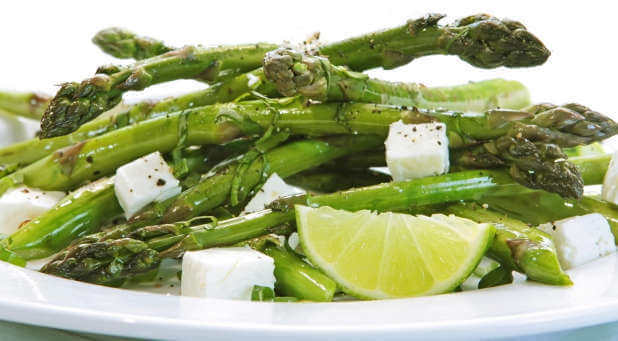Over the years I have reviewed hundreds of diet and fitness plans, and I have to say that most of them focus on what foods you can’t eat. Sometimes these plans focus on cutting sugar, or carbohydrates, or meat, or even solid food.
Seriously, I once saw a plan called “The Cabbage Soup Diet,” and one called the “Grapefruit Diet.” To paraphrase the words of Jesus: Man can’t live by grapefruit alone!
These plans are destined to fail because they deny a basic truth—humans love to eat. We love the taste of food and the feel of food and the joy and celebration surrounding food. Normal people don’t like to feel hunger pangs, and they don’t like to feel deprived. When your brain does without certain chemicals that can come from food, it definitely begins sending the signal of deprivation!
So what is a person to do in this stress-filled world? In our country, where the law of supply and demand rules our economy, if there is a demand for something, then someone will create it. And if someone creates it, then a competitor will create it better and cheaper. Guaranteed.
Sadly, when this comes to food, your body can suffer. Cheap, highly processed foods not only taste good, but they hit that pleasure center in your brain (called the ventral tegmental area) that makes you feel less stressed—for the moment. Unfortunately, the chemicals, preservatives, and excessive sugar and salt in these products guarantee more stress on your body in the long run.
How can we hit that “sweet spot” in the brain that makes us feel relaxed and happy without causing ourselves more stress in the long run? What foods can we eat that not only increase our resiliency to stress, but also make our brains and bodies feel satisfied? Here are some ideas:
1. Asparagus – A mood enhancing vegetable thanks to tons of folic acid. Because they are cruciferous, they help open up detoxification pathways. Try them marinated in olive oil and rosemary and grilled. Delicious leftover diced up in an omelet or frittata.
2. Avocado – High in B vitamins that give you a mood boost. High in healthy fats that lower blood pressure which reduces body stress. Eat them as guacamole, or added to any smoothie, soup, or stew. Try them salted and spread on toast instead of butter or peanut butter. Delicious sliced into eggs.
3. Blueberries – Deliciously sweet and tart, just a handful can reduce oxidative stress in your body. Add a bit of coconut cream to them for a late-night dessert. Add them to cereal, oatmeal, smoothies, or freeze them for a cold snack.
4. Almonds – Almonds boost your immune system during times of stress; making your body more resilient. Keep baggies with about 20 almonds in your desk at work, in the car, or in the snack cabinet at home. Eat them every day for best results. Add slivered almonds to green beans, or on top of casseroles.
5. Oranges – High in vitamin C which supports good immune function. Lowers blood pressure and cortisol—the stress hormone. Eat the whole orange; not just the juice for a lower glycemic response. Try segments of fresh oranges mixed with coconut shreds for a delicious ambrosia at dessert time.
6. Oily fish – Put more oily fish like sardines, anchovies, herring, tuna, and salmon in your diet to keep cortisol levels from spiking when you encounter stressful situations. Most Americans are deficient in omega-3 fatty acids found in these fish. Make sure to get only wild caught, not farm raised. Try to get about 4 oz. three times a week for optimal resilience.
7. Spinach – Packed with magnesium that lowers blood pressure and the stress response. Make sure to get organic. Try a handful in your omelet, or in place of lettuce on your sandwich. Put a cupful in your smoothie or in any soup, stew, or salad.
By focusing on foods that you can eat instead of focusing on those you can’t eat, you will be happier, healthier, and more resilient to the inevitable stresses of life!
America’s leading stress expert, Dr. Pete Sulack is a highly sought-after teacher, lecturer, and author. His studies on the effects of stress, coupled with over one-million patient visits and attention from medical communities led him to write and create Unhealthy Anonymous to help individuals, corporations and non-profits mitigate the immense effects of stress on health and human behavior. Use code http://www.uha12.com/#hope to receive a $1/month discount!















































